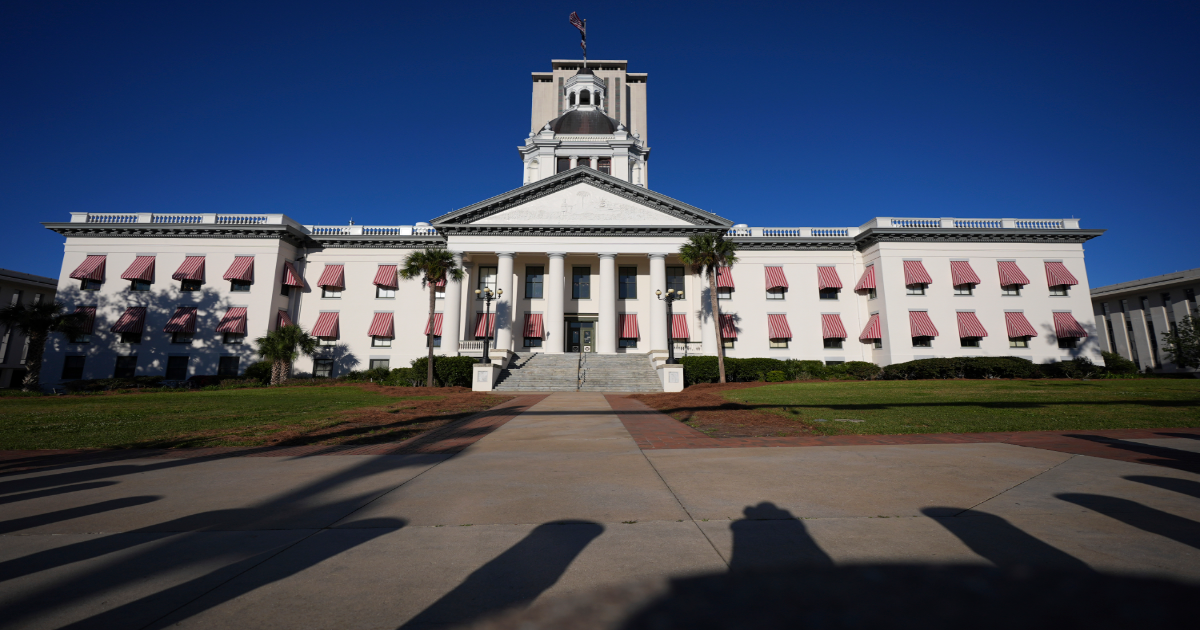TALLAHASSEE, Florida — Florida’s top Medicaid regulator on Tuesday sought to explain a $10 million donation made to a nonprofit associated with first lady Casey DeSantis’ community-based assistance program was not made with Medicaid dollars recouped in a much larger cash settlement.
Amid heightened scrutiny Hope Florida has received over whether it improperly received money intended for the state, the Florida Agency for Health Care Administration’s general counsel sought to clarify the original intent of the money in a Tuesday letter to legislative leaders.
Questions about the program have also led Gov. Ron DeSantis to lash out at state House leaders throughout most of this year’s legislative session, accusing them of colluding with Democrats to kill a program that he has described as a cheaper alternative to publicly subsidized assistance programs that has already helped 30,000 people. And the battle now has pitted a key House Republican against the state’s attorney general.
The Centene Corp. and the Florida Agency for Health Care Administration agreed to a $67 million cash settlement last year over a claim that the state Medicaid program was charged too much for prescription drugs. The agreement, finalized at the end of September, included a $10 million donation made by Centene to the nonprofit arm of Hope Florida, a community-based assistance program that subsequently distributed the grant to groups that campaigned against a recreational pot ballot measure that failed last year.
The $10 million donation garnered headlines as state lawmakers began inquiries over the program’s finances. House Health Care Budget Chair Alex Andrade (R-Pensacola) believes the donation to the Hope Florida Foundation came from Medicaid dollars that the state had recouped from Centene.
But AHCA General Counsel Andrew T. Sheeran wrote in his Tuesday letter to Andrade, House Speaker Daniel Perez (R-Miami), and Senate President Ben Albritton (R-Wauchula) that the settlement offered by Centene gave $57 million to cover the Medicaid dollars that were kept by the company’s former pharmacy benefit manager. Centene also offered up to $10.8 million for any other alleged damages.
“The law does not prohibit executive branch officials from negotiating settlement conditions that would require a released entity to take actions other than paying money to the State,” Sheeran wrote in the letter. “Nor are such provisions unprecedented.”
Andrade is also now focused on Florida Attorney General James Uthmeier, who he says oversaw the Centene settlement while he was the chief of staff for Gov. Ron DeSantis. While speaking with reporters after a committee meeting last week, Andrade accused Uthmeier of funneling the $10 million donation from the settlement to political committees that campaigned against Amendment 3, which sought to permit recreational pot use for adults but failed to pass in last year’s election.
DeSantis appointed Uthmeier as state attorney general in February. When asked about the Centene settlement Tuesday, Uthmeier dismissed recent reporting as “politicized narratives” and — without naming Andrade directly — claimed the state House lawmaker was on a “tirade” and “doing the bidding of Big Marijuana.” Uthmeier said he had not been part of negotiating the deal with Centene to decide where the money went but that “everything looks legal.” He also defended his work in helping to defeat the amendment that would have legalized marijuana for recreational reasons for people 21 and up.
“I think the media misunderstands the difference between issue committees and political candidate committees under the IRS code — an issue committee can fight against a ballot initiative, and I’m very thankful those groups stepped up and helped us secure a big win,” he said.
Florida was one of more than 20 states that filed claims against Centene after they discovered the company’s former PBM failed to pass down the savings from rebates issued by prescription drug manufacturers. The company had set aside more than $1 billion to settle the claims, leading to settlements finalized over the past couple of years that included a $215 million agreement with California and a $165 million to Texas.
Florida was one of the last states to finalize a settlement with Centene, and it was among a handful that had hired the Jackson, Mississippi-based law firm of Liston and Deas to broker the deal. The firm told POLITICO in August that it was no longer representing the state in its settlement and referred questions to the state attorney general’s office. A lawyer from Centene sent a letter to Liston and Deas in February 2023 urging Florida to consider a $67 million settlement, which includes up to $10.8 million for “Any other potentially alleged damages.”
AHCA’s Sheeran included the Centene letter in his memo to legislative leaders, which also provided a calculation of the transactions included in the settlement and other cost factors that led Centene to determine that the state’s claim involved $57 million in actual Medicaid dollars.
“We are glad to clarify any misunderstanding you may have had and to confirm that the settlement agreement was and remains consistent with all applicable laws,” Sheeran wrote.
Andrade’s committee heard testimony last week from Hope Florida Foundation Chair Joshua Hay, who had said the board had no prior knowledge of the $10 million donation from Centene until he was briefed by the board’s lawyer Jeff Aaron. Afterward, Andrade said he planned to invite Aaron to appear during a committee meeting sometime this week, and potentially issue subpoenas to obtain records from the nonprofit foundation, AHCA and the state Department of Children and Families.
Uthmeier added that he was “committed” to complying with public records requests but had not been subpoenaed by the Legislature regarding the investigation.
Kimberly Leonard contributed to this report.



